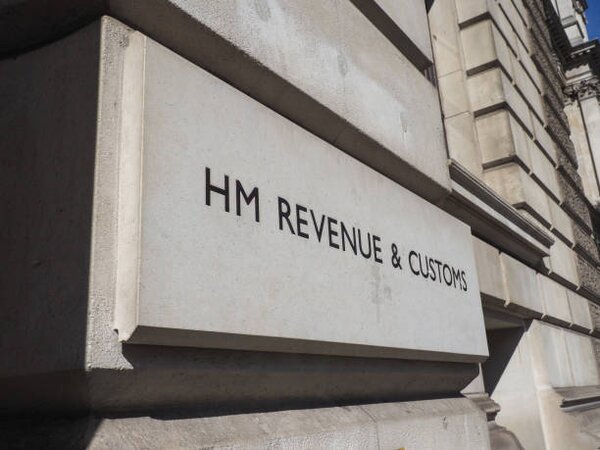In Short
Corporate tax, also known as corporation tax, is a direct tax levied on the income or capital of corporations and other similar legal entities. In the United Kingdom, corporation tax is paid by UK limited companies and some other organizations, including charities, community amateur sports clubs, and friendly societies.
The tax is based on the annual profits that a company makes, and certain specific expenses can be deducted to reduce tax liability. Corporation tax rates vary, with a main rate of 19% in 2021-22, and a reduced rate of 10% applying to profits relating to patented technologies.
What is corporation tax and why does every business need to know?
Corporation tax is a tax that UK companies pay on their profits. It’s one of the biggest expenses your business might face, so understanding the tax regime and getting to grips with it is essential for financial planning.
Unlike income tax for individuals, corporation tax applies specifically to companies rather than the people who own or work for them. Every limited company must handle their own calculations and payments without the convenience of a PAYE system, ensuring they accurately pay taxes based on their profits.
The rates have changed recently, with the main rate now at 25% for larger businesses. Smaller companies can still benefit from the 19% rate in many cases, providing some relief for growing enterprises.

Who Pays Corporation Tax
Corporation tax is paid by all UK limited companies, as well as other organizations such as charities and community amateur sports clubs. Sole traders and partnerships do not pay corporation tax; instead, they pay income tax on their business profits and capital gains tax on any gain from the sale of assets. Foreign companies with a UK branch or office are also required to pay corporation tax on their UK profits. To determine who pays corporation tax, it is essential to understand the different types of business structures and their tax obligations.
What does "corporation tax meaning" actually mean?
Put simply, corporation tax meaning refers to the corporate income tax that limited companies and certain organisations must pay on their profits. It’s a direct tax on business success that applies to trading profits, investment income, and chargeable gains.
This tax is completely separate from the income tax that company directors or shareholders pay on their salaries or dividends received. Understanding this distinction helps clarify your overall tax position.
Corporation tax works on a self-assessment basis, meaning your company must calculate its own tax bill, report it to HMRC, and pay what’s owed on time. Knowing which expenses you can deduct before calculating your profits helps reduce your overall liability.

When do you need to pay corporation tax?
Unlike personal tax which follows the April-to-April tax year, corporation tax works around your company’s accounting period. You’ll need to pay your bill 9 months and 1 day after your accounting period ends, with interest charges applying to late payments.
Larger companies with profits over £1.5 million need to pay in quarterly instalments rather than one annual payment. This affects cash flow planning for growing businesses.
New companies must register for corporation tax within 3 months of starting business activity to avoid penalties. HMRC doesn’t send reminders about this requirement, so it’s entirely your responsibility to comply with the deadline.
Registering for Corporation Tax
Limited companies need to register for corporation tax within three months of commencing trade. Registration can be done through HMRC on the Gov.uk website, and details required include company name and number, address, taxable profits, and accounting period. It is crucial to register for corporation tax to avoid penalties and fines. The registration process involves providing HMRC with the necessary information to determine the company’s tax liability.

How is corporation tax calculated?
Corporation tax is worked out on your net profit, not your total income. This crucial distinction means you start with your total income, then subtract allowable business expenses such as staff costs, premises, equipment, and business travel.
Capital allowances give you tax relief when buying assets for your business, like machinery or company vehicles. These deductions can significantly reduce your taxable profit. Certain corporate events like formation or reorganization are treated as capital costs, which can be exempt from income tax.
The current main rate is 25% for companies with profits over £250,000, while companies with profits under £50,000 pay just 19%. Companies with profits between these thresholds benefit from marginal relief that gradually increases the rate.
Taxable Income and Allowances
Taxable income for corporation tax purposes includes income from trading and investments, minus day-to-day expenses and various other deductions. Companies can set losses against profits made in other years, subject to restrictions. Research and development (R&D) tax reliefs allow companies to deduct more than 100% of qualifying current expenditure on R&D. Capital allowances can be used by companies to deduct their capital expenditure from taxable profits over a number of years. The annual investment allowance (AIA) allows companies to deduct more than the full cost of some investment.
Final thoughts on corporation tax
Corporation Tax is a key obligation for limited companies operating in the UK. Understanding how it works, what income it applies to, and when payments and filings are due is essential for staying compliant.
Proper record-keeping and timely submissions can help avoid penalties and ensure smooth business operations. As tax rules can evolve, it’s important to stay informed about any changes that may affect your company’s tax responsibilities.
Taking the time to understand your Corporation Tax duties can also support better financial planning and decision-making for the year ahead.

What tax reliefs can help reduce your corporation tax bill?
Research and Development (R&D) tax relief is available if your company works on innovative projects. This valuable incentive can be a game-changer for tech businesses and manufacturers developing new products.
The Annual Investment Allowance lets you deduct the full cost of certain equipment from your profits before tax. Currently set at £1 million, this relief encourages business investment in qualifying assets.
The Patent Box scheme offers a lower corporation tax rate of just 10% on profits from patented inventions. Meanwhile, creative industry tax reliefs support companies in film, TV, video games and other creative sectors through enhanced deductions.
Understanding which expenses are tax deductible is crucial for maximizing your tax reliefs and reducing your overall tax liability.
Expenses and Deductions
Certain business expenses can be deducted from income to reduce tax liability, including salaries and wages, rent and rates, utilities, travel expenses, and equipment and machinery. Companies can also claim capital allowances on property and other assets. The Super Deduction is a tax allowance for investment in qualifying plant and machinery, allowing for a 130% write-off against taxable profits. R&D tax relief is available for businesses that develop new products, processes, or services, and can be claimed in one of two ways: enhanced deduction from taxable profits or repayable tax credit from HMRC. Understanding the different types of expenses and deductions is essential to minimize a company’s corporation tax liability.

How do you file a corporation tax return?
You’ll need to submit a Company Tax Return (Form CT600) online every year, as paper returns are no longer accepted. Your return must be filed within 12 months after the end of your accounting period, with automatic penalties for late filing, as enforced by tax authorities.
Along with the return, you’ll need to submit your full company accounts and tax computations that show how you’ve calculated your tax bill. Most companies use accounting software or work with an accountant to ensure accuracy.
Remember that filing your return and paying your tax bill have different deadlines. Payment is due earlier than the return, which catches out many first-time company directors who assume the deadlines align.
What recent changes to corporation tax should you know about?
The biggest recent change is the corporate tax rate increasing to 25% from April 2023 for companies with profits over £250,000. This significant jump from the previous 19% flat rate has impacted tax planning for many businesses.
Companies with profits under £50,000 still benefit from the 19% small profits rate. Those with profits between £50,000 and £250,000 pay a rate between 19% and 25%, calculated using marginal relief.
The super-deduction capital allowance scheme, which offered 130% relief on certain investments, ended in March 2023. Additionally, Making Tax Digital is coming for corporation tax, meaning digital record-keeping and quarterly updates will eventually become mandatory.
How can you manage your corporation tax efficiently?
Keep detailed, accurate records throughout the year to make tax calculations easier when the time comes. This proactive approach also helps identify potential deductions you might otherwise miss.
Plan major purchases carefully, as timing can affect which tax year they fall into and what allowances you can claim. Sometimes delaying or accelerating a purchase by a few weeks can yield significant tax benefits.
Consider your company's accounting period dates and don't forget to claim all allowable expenses. Many businesses miss out on tax relief by overlooking legitimate business costs like home office expenses or staff training.












